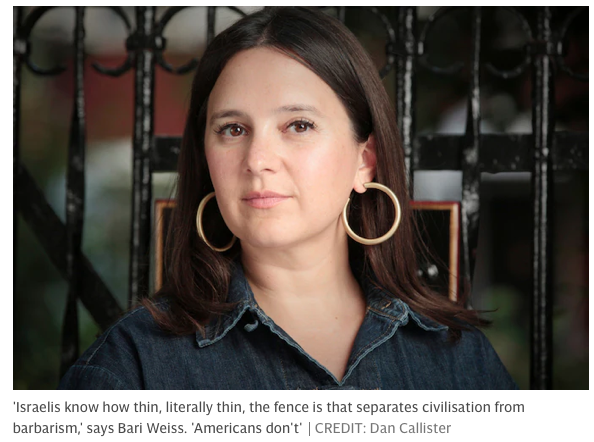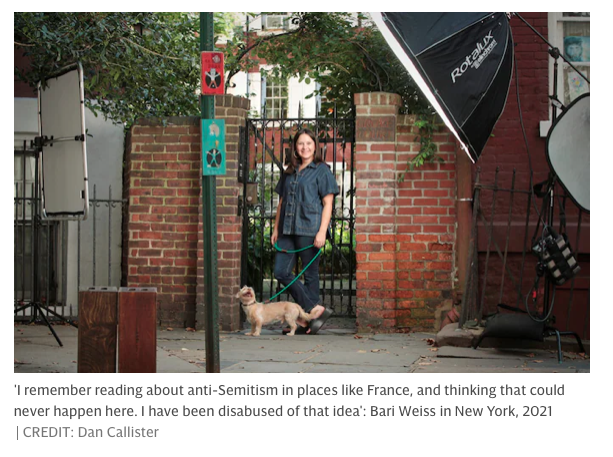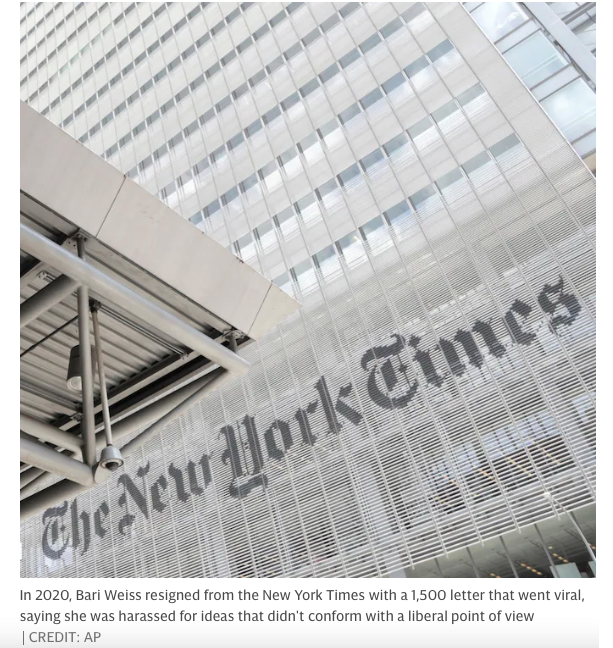
Links
Sheba Medical Centre
Melanie Phillips
Shariah Finance Watch
Australian Islamist Monitor - MultiFaith
West Australian Friends of Israel
Why Israel is at war
Lozowick Blog
NeoZionoid The NeoZionoiZeoN blog
Blank pages of the age
Silent Runnings
Jewish Issues watchdog
Discover more about Israel advocacy
Zionists the creation of Israel
Dissecting the Left
Paula says
Perspectives on Israel - Zionists
Zionism & Israel Information Center
Zionism educational seminars
Christian dhimmitude
Forum on Mideast
Israel Blog - documents terror war against Israelis
Zionism on the web
RECOMMENDED: newsback News discussion community
RSS Feed software from CarP
International law, Arab-Israeli conflict
Think-Israel
The Big Lies
Shmloozing with terrorists
IDF ON YOUTUBE
Israel's contributions to the world
MEMRI
Mark Durie Blog
The latest good news from Israel...new inventions, cures, advances.
support defenders of Israel
The Gaza War 2014
The 2014 Gaza Conflict Factual and Legal Aspects
To get maximum benefit from the ICJS website Register now. Select the topics which interest you.
Bari Weiss: 'History has come for Israel, it’s come for Ukraine and it will come for the West next'
The free-speech champion has created her own unique political landscape with a series of blogs and podcasts Zoe Strimpel17 March 2024 • 7:00am

Bari Weiss in New York, 2021
It wasn't easy pinning Bari Weiss down for a chat. Despite our fond regard for each other - we are both Jewesses of the same age, both keen on defending Israel in the media - the American journalist and editor was always frenetically busy, as her profile has gone stratospheric since we last met.
When we met in 2021, in a sweltering New York summer, she had half a million Twitter followers and a Substack newsletter (Common Sense) that was rapidly gathering readers and revenue. The previous year, she had resigned from her job as an op-ed editor and writer at the New York Times with a 1,500-word resignation letter that went viral. "Twitter is not on the masthead of the New York Times. But Twitter has become its ultimate editor," she wrote, accusing the paper of a culture of bullying writers with slightly right-of-woke views.
By this point, Weiss already had a high profile. Shortly after she left the NYT, her team chased down, for her Honestly podcast, the "Central Park Karen", the white woman accused of calling the police on a black dog walker in Central Park shortly after George Floyd's death; the reality turned out to be more complicated than it had been presented. Her star was rising, and fast.
Now, Weiss's X/Twitter following has reached one million and Common Sense has become the Free Press, a multimedia company with a staff of 20, and offices in New York and Los Angeles. In addition, the Free Press has a Netflix deal to make documentaries out of its stories, plus a busy programme of events, including a flagship project she calls American Debates, on topics such as Gaza, Israel and illegal immigration. The first will be on immigration, held live in Texas, where in 2021 she co-founded the University of Austin, a "free thought, anti-cancel-culture university".
She tells me how UATX, as it is known, grew out of a meeting "on a hot Austin summer day" with, among others, Palantir founder and venture-capitalist Joe Lonsdale, historian Niall Ferguson and educator Pano Kanelos .
Its aim is to hoover up those disillusioned with legacy universities and their oppressive rules about what can and can't be said, read and even inquired about. It describes itself as devoted to the "fearless pursuit of truth" and its liberal-arts core, taught in years one and two, teaches "the foundations of civilisation and political life; the importance of law, virtue, order, beauty, meaningful work and leisure, and the sacred; the unique vibrancy of the American form of government and way of life; and the character and consequences of ideological tyranny".
Since November, more than 2,000 applications have been made for places that cost $32,500 in tuition and $58,750 including housing, food and so on. This year's first intake will have their tuition fees covered.
UATX has, however, received a lot of flak from critics - the New Republic said: "For all the hype, UATX doesn't really differentiate itself from many other ideas getting half-baked in the Lone Star State sun", and called it the "Johnny-Come-Lately in a burgeoning field of 'anti-woke' educational projects". I put this to Weiss. "I haven't paid attention to anything the New Republic has said in years," she says.
Weiss tells me about the prospective applicants she met for 100 undergraduate places starting in the autumn, describing them as "extraordinarily bright, very entrepreneurial". As for whether she'd send her own child to UATX over Harvard, or her alma mater, Columbia: "Hell, yeah. Are you kidding me? You have to ask yourself: why are so many people going along with so much of the bulls---? And the answer is plain. It's an addiction to prestige and being insiders. And I think it's really important to learn how to be outsiders again and learn how to build new things and be confident."
Meanwhile, in its first year, the Free Press pulled off two coups, making itself the envy of media the world over. There was The Witch Trials of J K Rowling, a podcast series with the Harry Potter author about her ordeal with the pro-trans mob. And then, the Twitter Files, in which Weiss fan Elon Musk, who had just become owner and CEO of Twitter, gave Weiss's team, plus fellow journalist Matt Taibbi, exclusive access to Twitter records relating to its content policies under previous ownership. The files revealed layer upon layer of politically motivated suppression during previous ownership under Covid.

"It was an amazing moment," says Weiss. "It was such a blur because the baby was so young and we were flying back and forth from LA with the baby, which was crazy, and staying on Nellie's mum's pull-out couch. Weiss, who has described herself as bisexual, is married to her former NYT colleague and Free Press columnist Nellie Bowles, but was previously married to Jason Kass, an environmental engineer.
"It was an incredible experience for me and for our company, because it was an unbelievably important story whose importance only grows, less in terms of Twitter per se, but just more in terms of the power of these tech companies over public discourse and the way that they do or don't work with Washington and the government. And people always ask me, would you do it again? I'm like, 'Are you kidding me?'"
Weiss, 39, is speaking to me from a glass-walled cubicle in the New York office of the Free Press, and I am surprised by how fresh she looks, given the intensity of the way she combines toddler parenthood with her jet-set workaholism. She claims it's down to a new haircut and yearly Botox in the forehead. She and Bowles live in LA but are moving to New York for a year to oversee the new Free Press offices.
"You know I have my fake eyelashes on," she says, explaining that they were part of her look for a talk on the state of world Jewry, delivered the previous evening at the YMCA on 92nd Street. As Jerry Seinfeld, who recently visited Kibbutz Be'eri in southern Israel, one of the sites of Hamas's invasion and butchery on October 7, left the event, he was harassed and heckled outside by a mob who had turned up to protest against Weiss's presence.
"I mean, it was meant to be open to the public," she says. "But as will not surprise anyone paying attention to these issues, the first day the event was posted, the NYPD warned the venue of the potential for rioting. And so they made it an invite-only, which was a real shame. But it was packed nonetheless. There was a lot of security. The cops did a phenomenal job and I've now got sort of used to being protested as a supporter of genocide, or whatever the things are that they're saying."
As for her freshness despite newish parenthood, Weiss credits an "amazing nanny" and an extreme new efficiency brought on by motherhood. "There used to be breaks and recovery periods and there aren't anymore. I've just somehow got used to that. I think my main takeaway is I didn't understand how much working parents could get done in a day. Yeah, like [I was] procrastinating on 600-word squibs, or book reviews and now I'm like, 'Oh, no, no, no, you are moving on, you don't have that option.'"
Weiss was born and bred in Pittsburgh, the eldest of four sisters, and brought up in a loving, intellectual, hard-working Jewish family - with a Republican father and a Democrat mother. She studied at Columbia University, and then went into journalism, with roles including op-ed and book-review editor at the Wall Street Journal, before landing at the New York Times in 2017.

In 2020, Bari Weiss resigned from the New York Times with a 1,500 letter that went viral, saying she was harassed for ideas that didn't conform with a liberal point of view
Credit: AP
Weiss is known for her coverage of anti-Semitism in America, and calling out its manifestations is one of the things she's best known for. Her first book, How to Fight Anti-Semitism, published in 2019, was spurred by the Tree of Life synagogue shooting in Pittsburgh the previous year. But when we met in New York in 2021, long before the Hamas massacre of October 7, Weiss had told me that, as an American Jew, she'd always felt she could hold her head up high, in contrast to those of us in the Old World. "I had an arrogance, a sense that, you know, anti-Semitism was for Jews of other times, certainly, but also other places. And I remember reading about things that would happen, and places, especially like France, and thinking that could never happen here. I have been disabused of that idea."
The America that has roiled and reared up since Trump, since the Black Lives Matter movement swept over, and since October 7, has illuminated a new reality for Jews in the US. Weiss explains: "When we're free, when freedom and liberty thrive, Jews thrive. Because, by their very existence, Jews represent the freedom to think differently, the freedom to believe differently, the freedom to raise their families differently. What we're seeing now is a turn against freedom. In the grand sense, there's the turn against the idea, even of the free world and [there's this] kind of moral equivalency, whether it's from the Leftists who glorify Hamas, or Rightists like Tucker Carlson [who] glorify tyrants like Putin.
"It's also coming internally from… elite culture here in the States. I'm sure it's the same in the UK, where the ability to discern between free and unfree, good and bad, and better and worse, seems to have been erased. The fact that there are whole realms of American life where in order to succeed you kind of need to tamp down or hide your Jewishness is a sign of that."
Weiss went on a trip to Israel in January with young producers from the Free Press. As well as having drinks with Douglas Murray, she interviewed Lucy Aharish, Israel's first Muslim-Arab presenter, married to Fauda star Tzachi Halevy, who is Jewish, and held an event in Jaffa with Natan Sharansky, the human-rights activist and former Soviet prisoner, to whom Alexei Navalny began writing in prison. I ask her what she'd like to happen in Israel in the medium term, but she scoffs at the question, because she feels it's none of her business.
"The thing that really struck me [about the Israel trip] was the clarity, on the right and left, like, we know what we're fighting for. We know what's at stake. We know how thin the fence is that separates civilisation from barbarism. And I think if you ask most Americans, even many plugged-in Americans, a question like, 'Would you fight for America? What are you willing to die for?' I don't even think they would have the capacity.
"Many people, especially many of our elites, well, there's no sense of duty and responsibility. Leaving Israel [was] walking back into a society that I don't think has fully recognised the history that has come for Israel and has come for Ukraine, and maybe will soon come from Taiwan, will come for us. How can you even conceive of war if you don't even understand what it is that people are willing to fight and die for? And what are you willing to fight and die for?"
Weiss's coverage of October 7 in the Free Press has largely reflected her stance of staunch support for Israel's response and the moral importance of its fight for survival, especially in the face of global condemnation.
Relatives and friends walk among portraits of people taken captive or killed by Hamas militants during the Supernova music festival on October 7 style="max-width: 100%; font-family: Arial Unicode MS;">Credit: AFP
"I have made my own views clear," she says. But one piece in particular deviated from the Free Press's Zionist line on Israel, and that was an essay by Andrew Sullivan, the conservative blogger, entitled: "How many children is Israel willing to kill?" Sullivan, who has previously described Weiss as "an unhinged Zionist" (her response: she "happily pleads guilty as charged"), presented the kind of arguments that people like me seek to avoid, but it did pique my curiosity about how literally Weiss wants us to take the "free" part of the Free Press - after all, the vast majority of the time, the site appears to preach to the converted (anti-woke, trans-critical, pro-Israel, anti-Covid lockdown). In general, says Weiss, she wants to offer "a sort of moral authority on things that we think are really important and significant [but] we also want to be a home for passionate and civil debate and we try and do both of those things."
On the jarring nature of Sullivan: "People can get the anti-Israel view any day they pick up the Washington Post or the New York Times and in every sort of mainstream political outlet in the world. But [we wanted to run] the strongest possible articulation of the other perspective. I don't really have any regrets about running that Andrew Sullivan piece. A lot of our readers were angry about it. That's OK."
Weiss has so many friends in high places and she seems to be a magnet for success. One might want to hate her or envy her, but it's impossible. She is a rare combination of intellectually sharp, curious, learned, savvy and - here's what stops the envy or the dislike - optimistic and charming, keen to give people a fair say, and inclined to scope out the great things. Rather than coming away from a conversation with her feeling worse about the state of the world, I always feel better. And so, before we sign off, I tell her I've been distressed by what I've seen of American youth with their vicious anti-Israel tactics at Harvard and other campuses, and I worry about the abandonment of Israel by young American Jews, who often seem to prefer to be Bernie bros rather than supporters of the Jewish state.
But Weiss says, on the contrary, there are some of the bravest and brightest among American Jewish youth. "I mean, there's a very loud group, obviously young, progressive anti-Zionist groups, that get a lot of press coverage for all of the obvious reasons. But I have to say, I think some of the actual leaders of the American Jewish community are like 21 and 22 and you look at the ones who testified in Congress [about anti-Semitism on campus following the October 7 attacks] and they were amazing. The young people that come and want to work with us are unbelievable. They're way smarter than we were. To me, it's the older generation who can't conceive of the idea that the world we were all born into, the things we took for granted, is over. There's no going back. Young people are confronting all this [woke, anti-Jewish, anti-Zionist] stuff their entire college careers and those that emerge from that crucible with clarity are really, really special. Those are the people that I look to."
# reads: 73
Original piece is https://www.telegraph.co.uk/politics/2024/03/17/bari-weiss-interview-israel-ukraine-the-west/





















